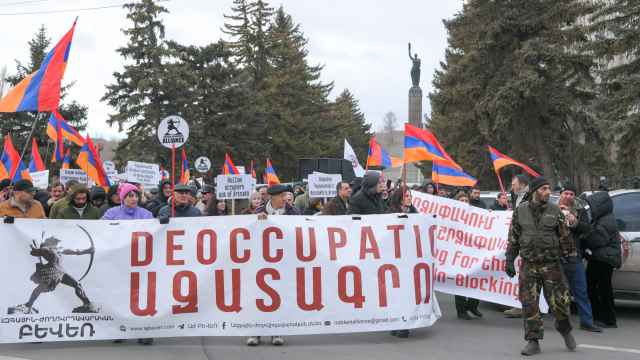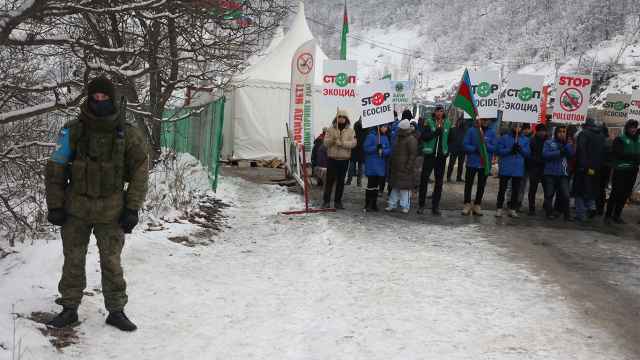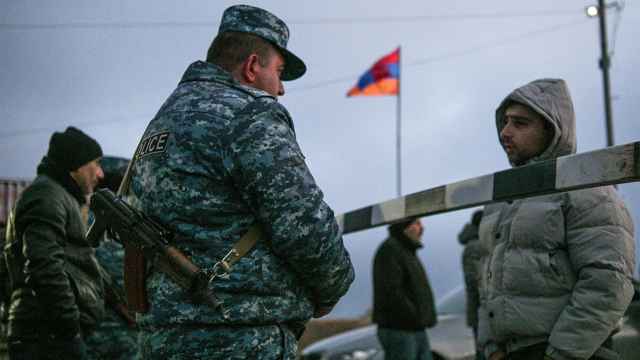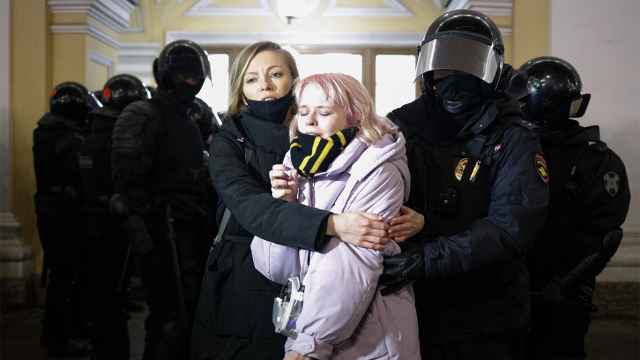YEREVAN, Armenia — Nearly every hand in the packed auditorium went up when the moderator asked who had arrived in this South Caucasus nation after Russia’s invasion of Ukraine.
“And who was living here before then?”
Three hands rose from the crowd.
At ArtDocFest Yerevan, the longstanding Russian documentary film festival that launched in the Armenian capital last month, the target audience was clear: the tens of thousands of Russians who have relocated here since the war’s outbreak.
The unprecedented influx into Armenia has led to the opening of dozens of small businesses, events and creative collaborations. These projects foster a sense of home away from home for Russian emigres — and enrich the society of which they are now a part.
“There’s been a new dawning and people have taken big steps forward — there are a lot of great places,” said Kirill Shuvalov, a Muscovite working in online tech education who fled to Armenia after Russia declared a “partial” mobilization in September.
In the center of this city of just over 1 million people, the Russian language is heard just as much as Armenian.
And a group of bars, restaurants and clubs — several opened by recent Russian expats — have become popular spots for new arrivals, with hipster aesthetics that resemble similar venues in Moscow or St. Petersburg.
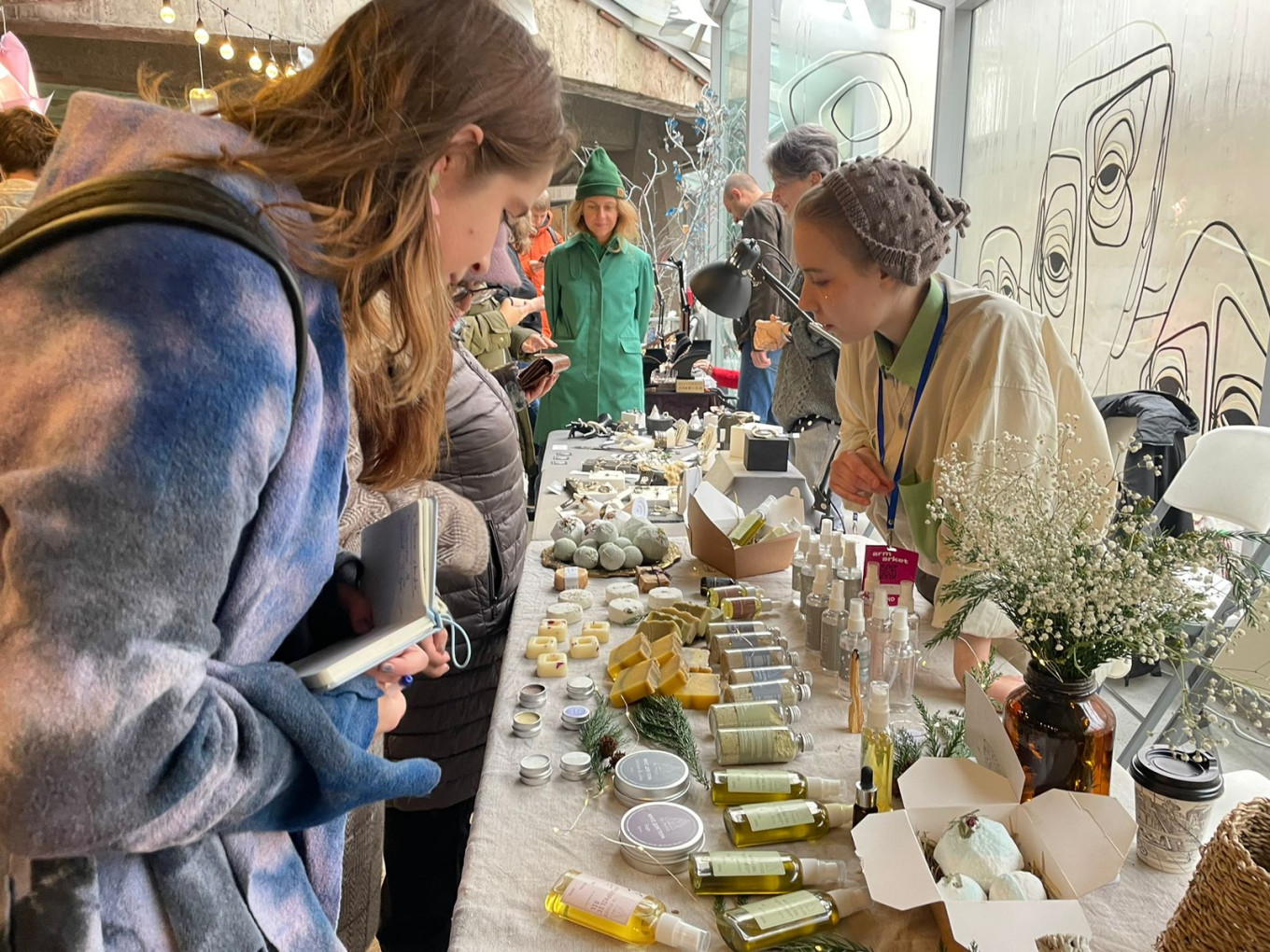
Hummus | Kimchi serves a mix of Israeli and Korean food, while “micro-cafe” 2022 offers vegan Asian fusion dishes and Russian craft beer. At night, bars like TUF and Esthetic Joys Embassy host everything from charity chess tournaments and stand-up nights to DJ sets.
Volchok, an edgy streetwear shop founded in Moscow, and Moscow record store Dig opened Yerevan outlets in the spring.
“Emigrants from Russia are probably trying to find something similar to where they went in their hometowns,” 2022 co-founder Marika Semenenko told The Moscow Times.
All of these projects are directly tied to the wave of Russian emigration. But many also have Armenian co-founders and Armenian collaborators — and all have Armenian staff.
Tucked away in a small storefront in a residential courtyard, 2022 was launched by a Yerevan coffee shop owner in partnership with a group of Russians, including Semenenko, who ran vegan restaurants in Moscow and came to Armenia after the war started.
The cafe’s customers are mainly Russians, along with some locals and Armenian repatriates. Many of the Russian visitors have been to the group’s Moscow restaurants.
“We think they’re happy to see familiar dishes, knowing already that they are delicious,” Semenenko said.
Dmitry Shingarev, who launched Hummus | Kimchi with his sister this spring, said it was important for them to create a laid-back, comfortable space for new expats and locals alike.
“We regularly hear comments that our cafe resembles places in Moscow or St. Petersburg. Some also compare us with bars in Jaffa in Israel or with cafes in Bali. But we … just wanted to create a cozy atmosphere,” he said.
“For the locals, our format [of mixing Israeli and Korean cuisine] was a little incomprehensible. But over time, more and more Armenians began to visit us,” he added.
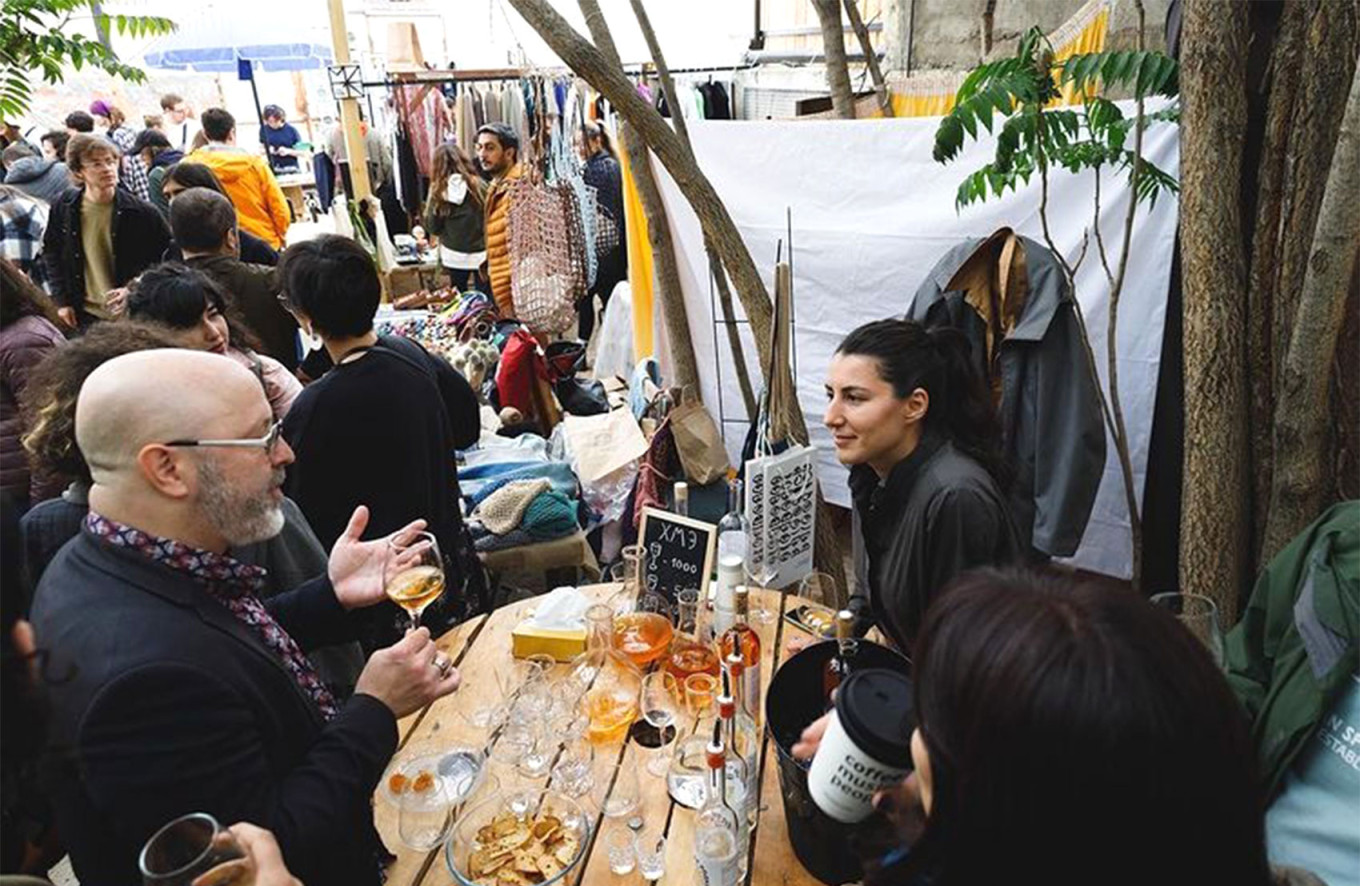
Many factors make Armenia a popular destination for Russians fleeing war, persecution and mobilization: Russian citizens can stay here up to six months visa-free; Russian is widely spoken; and it’s fairly simple for foreigners to register a business.
It’s also inexpensive to open a cafe or bar in one of the city's many garages or kiosks.
“We opened the cafe with our own money, without investors. It would have been impossible to do this in Moscow,” Shingarev said.
Armenia’s famed hospitality means adapting to life in the country is not difficult, according to Anastasia Akshova, a brand manager for Move2Armenia, a nonprofit helping foreigners navigate the logistics of relocation.
She and her boyfriend co-founded Table for Friends, which organizes themed brunches and dinners to give Russians a place to meet one another.
“We have a joke that it’s a ‘demi-version’ of emigration. Many Armenians live in Russia and we see them as our friends, and they also see Russians as their friends … Here it’s super friendly and hospitable, the only thing you have to do is be respectful,” she said.
Compared to Armenia’s northern neighbor Georgia — which also took in tens of thousands of Russians this year — there are far fewer displays of opposition to the war here.
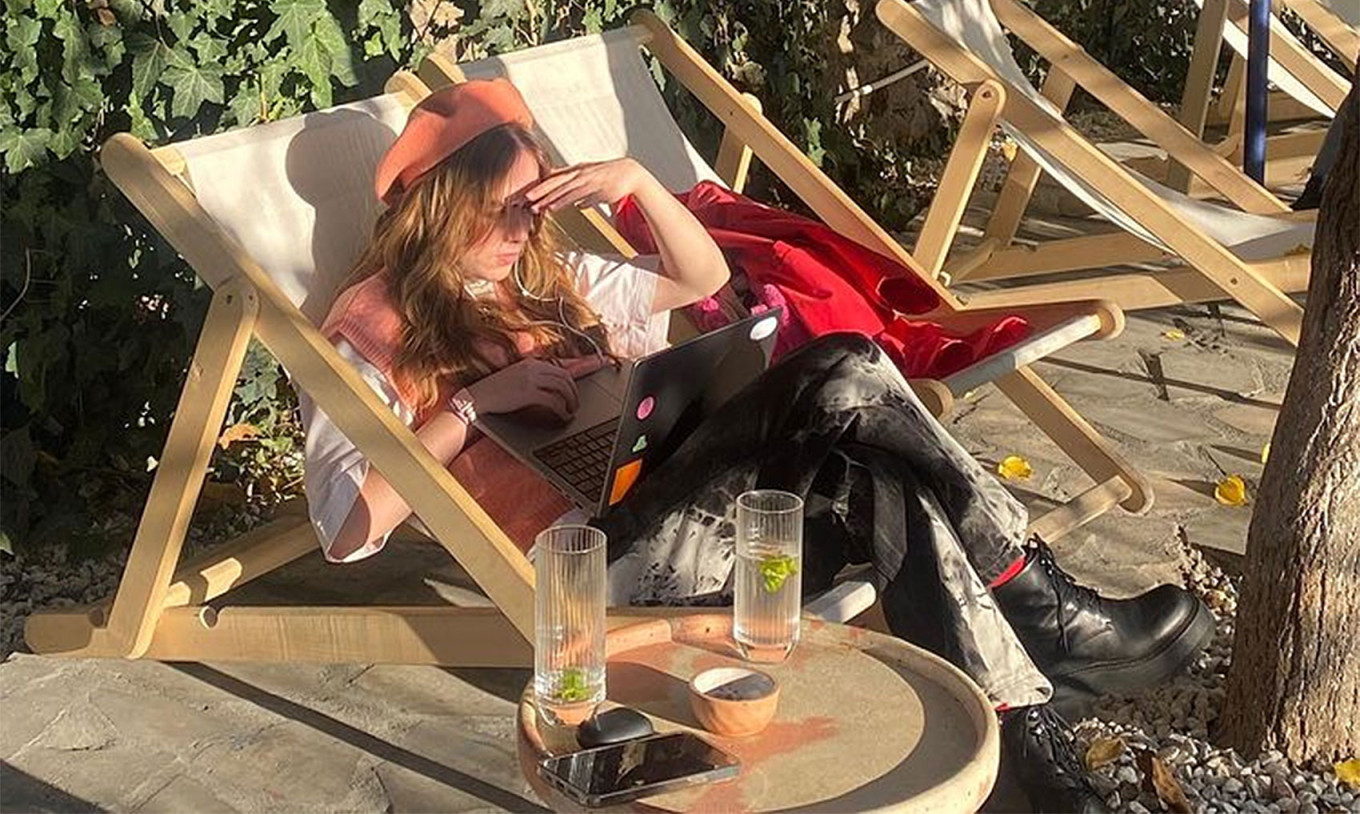
But this doesn’t mean resistance is nonexistent.
On the eve of Russian President Vladimir Putin’s arrival in Yerevan for a summit last week, hundreds of Russians and Armenians alike took to the streets to protest his visit.
“We tried to run away from that grandpa, but he followed us here,” Shuvalov told The Moscow Times from the Esthetic Joys Embassy bar as a projector beamed an Armenian newscast — with a larger-than-life Putin giving a speech — onto the wall.
Some Russian expats have gotten involved in social projects to help refugees from Ukraine and the war-torn region of Nagorno-Karabakh, including charity Ethos and education project Free School.
As in other countries where large numbers of Russians have fled, skyrocketing rental prices have created tension with locals. But the influx is also giving a major boost to the economy, with Armenia’s Central Bank recently revising its economic growth projection for this year from 1.6% to 13%.
Armenian ceramics artist Mane Brutents said the influx of Russians has largely benefited Armenia’s small, tight-knit ceramics community.
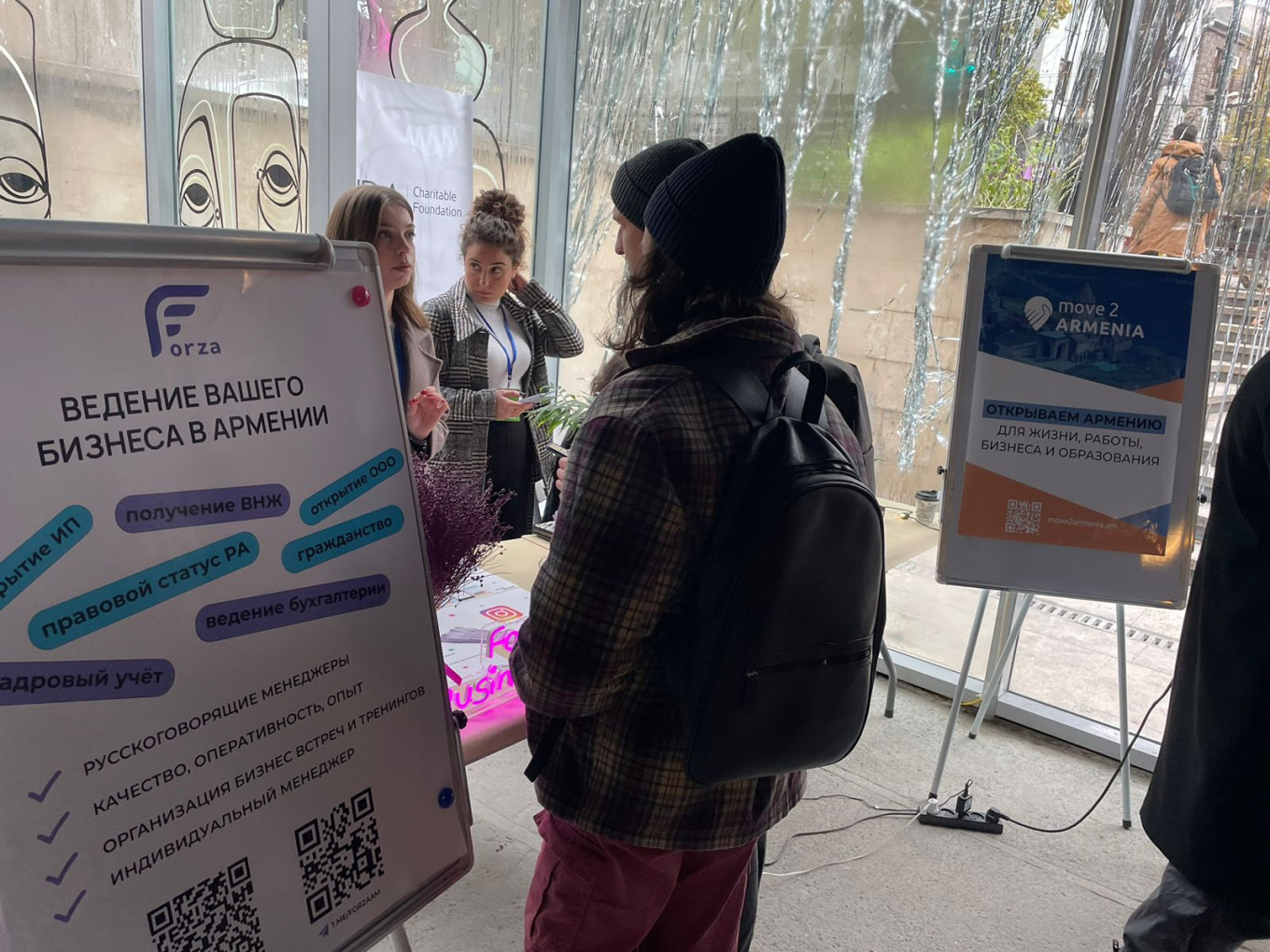
“More ceramists means more healthy competition, and more demand means more materials and information,” she said.
But with some Russians already returning home after Putin declared mobilization at an end, Yerevan’s new Russian businesses face an uncertain future.
“Our planning horizon is about a month,” Semenenko from 2022 said.
“Maybe we'll go back too. Maybe no one will be able to return, and we will stay here and continue to do what we know and love.”
Hummus | Kimchi’s Shingarev said their team plans to open another cafe in Yerevan.
“We are already a special point on the gastronomic map of Yerevan. … Even if most of the expats leave, the local guys will stay,” he said.
And all Russians interviewed by The Moscow Times agreed that Yerevan remains a distinctive city with its own identity even after the flood of new arrivals.
“[Yerevan] doesn’t need to strive to be like Moscow,” a representative for Moscow streetwear brand Volchok said in written comments.
“Rather, we strive to be like Yerevan.”
A Message from The Moscow Times:
Dear readers,
We are facing unprecedented challenges. Russia's Prosecutor General's Office has designated The Moscow Times as an "undesirable" organization, criminalizing our work and putting our staff at risk of prosecution. This follows our earlier unjust labeling as a "foreign agent."
These actions are direct attempts to silence independent journalism in Russia. The authorities claim our work "discredits the decisions of the Russian leadership." We see things differently: we strive to provide accurate, unbiased reporting on Russia.
We, the journalists of The Moscow Times, refuse to be silenced. But to continue our work, we need your help.
Your support, no matter how small, makes a world of difference. If you can, please support us monthly starting from just $2. It's quick to set up, and every contribution makes a significant impact.
By supporting The Moscow Times, you're defending open, independent journalism in the face of repression. Thank you for standing with us.
Remind me later.




